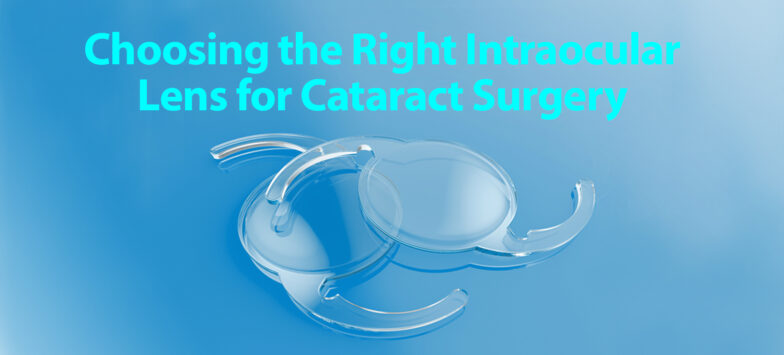
Lens Implants for Cataract Surgery: Know Your Options
If you live a long life, as most of us would wish, you’re very likely to develop impaired vision because of cataracts. And sooner or later, just about everyone opts for cataract surgery to restore good vision. You may already know that cataract surgery involves replacing the clouded natural lens inside the eye with a new, clear artificial lens. But did you know that there are several types of these lenses (called intraocular lenses or IOLs) that can be implanted during cataract surgery, depending on your individual needs and vision goals?
A thorough discussion with your ophthalmologist is the critical final step. According to the American Academy of Ophthalmologists, here are some of the options that you and your doctor may discuss before cataract surgery:
Monofocal lenses are designed to provide the best possible vision at one distance. Most people who choose mono-focal have their IOLs set for distance vision. They use reading glasses for near-vision tasks.
Multifocal IOLs have corrective zones built into the lens, much like bifocal or trifocal eyeglasses. This allows you to see both near and far objects. Some multifocal may also correct intermediate vision.
Accommodative (multifocal) lenses can also correct vision at all distances. The lens uses the natural movements of your eye’s muscles to change focus.
Extended depth-of-focus (EDOF) IOLs have only one corrective zone. But this zone is stretched to allow distance and intermediate vision.
Toric lenses have an extra built-in correction for astigmatism.
In addition, there is a Light Adjustable Lens, a monofocal lens implant that can be adjusted after it’s already inside your eye. This adjustability allows it to be more accurate in achieving glasses-free vision for many patients.
How to Decide?
Your Atlantic Eye ophthalmologist will be your best guide in this. Not every lens is appropriate for every person. Considerations such as general health, eye health, lifestyle, and affordability will all factor into the decision.
For example, not all IOL types are covered by insurance. But Medicare and most insurance companies do cover the cost of the most common IOL, the mono-focal lens.
Multifocal, EDOF, and accommodative IOLs are often called “premium” lenses. (see https://atlanticeye.com/premium-iols/). They can reduce or eliminate your need for glasses or contact lenses, but they are more expensive than mono-focal and may not be fully covered by insurance.
Your Atlantic Eye physician will help you decide which type of lens implant works best for you. And we want to remind everyone that screening for cataracts and other age-related eye disorders should start with a baseline eye exam at age 40 – even if you are not aware of any visual disturbances. Early detection is always best!
